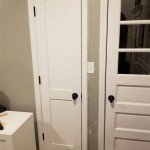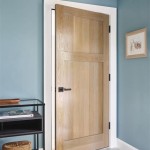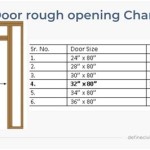Interior door self-closing hinges are a convenient and secure way to keep your doors shut. These hinges close the door automatically after someone opens it, ensuring that the door remains closed until it is manually opened again. This article will provide an in-depth look at interior door self-closing hinges, including their types, installation, benefits, and more.
Types of Interior Door Self Closing Hinges
There are several types of interior door self-closing hinges available. The most common types are the spring-loaded hinges, which use a spring to close the door, and the ball-bearing hinges, which use a ball bearing to close the door. Other types of interior door self-closing hinges include the magnetic hinges, which use a magnet to close the door, and the gravity hinges, which use gravity to close the door.
Installation of Interior Door Self Closing Hinges
Installing interior door self-closing hinges is a relatively easy process. First, you will need to measure the door and the frame to ensure that the hinges will fit. Once the hinges have been measured, you can then install them onto the door frame. Most self-closing hinges come with detailed instructions that will guide you through the installation process.
Benefits of Interior Door Self Closing Hinges
Interior door self-closing hinges offer a range of benefits. One of the most obvious benefits is the added security that these hinges provide. With self-closing hinges, you can be sure that your doors will remain closed until someone manually opens them. Additionally, these hinges are often more aesthetically pleasing than traditional door hinges, as they can be installed without visible screws.
Conclusion
Interior door self-closing hinges are a great way to ensure that your doors remain closed until they are manually opened. They come in a variety of types and are relatively easy to install. Additionally, they provide added security and can be aesthetically pleasing. This article has provided an in-depth look at interior door self-closing hinges, including their types, installation, benefits, and more.















Related Posts








